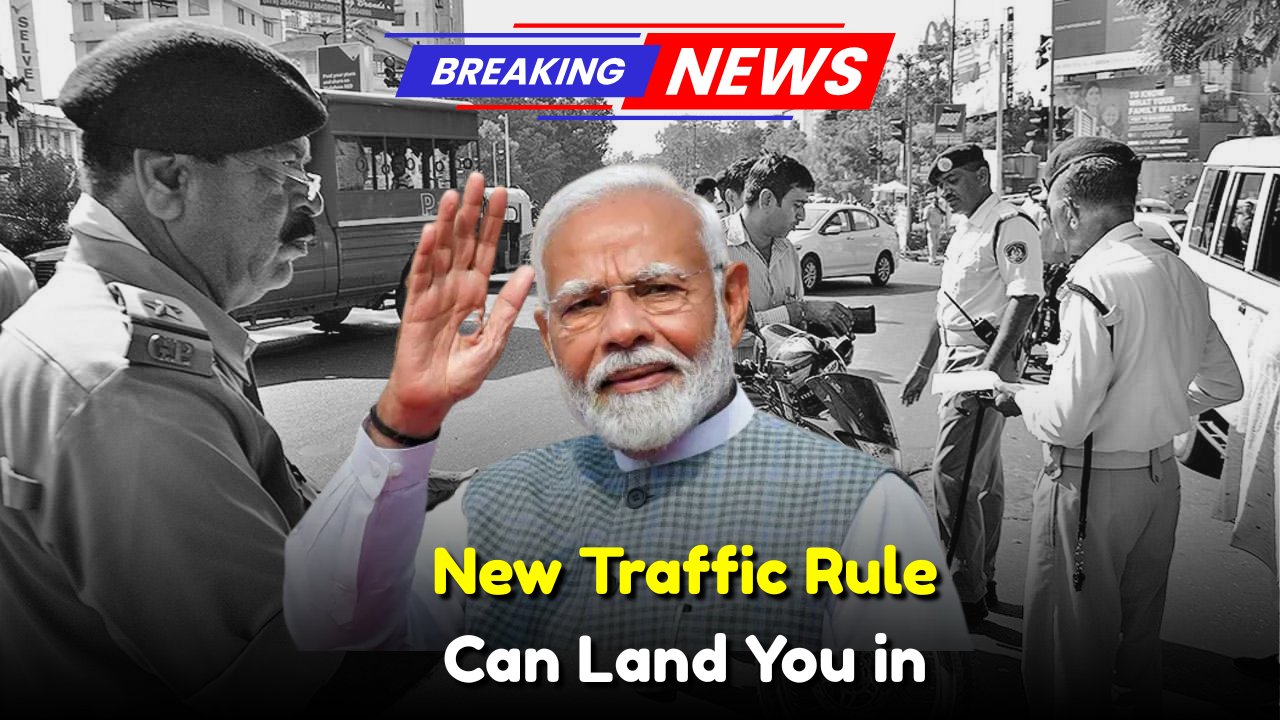Traffic Challan Alert : Driving on Indian roads comes with a responsibility, and failing to follow traffic rules can now have serious consequences. With the amended Motor Vehicles Act and stricter implementation by traffic authorities, even a single mistake can lead to a heavy challan or even imprisonment. If you’re a regular driver, it’s crucial to stay informed about these new regulations to avoid unnecessary penalties.
Why Traffic Challan Alert Matters for Every Driver
The Indian government has introduced major changes in traffic laws to reduce accidents, ensure road discipline, and promote safe driving habits. These changes include increased fines, license suspension, and even jail time for severe violations. Whether you’re a two-wheeler rider or car driver, these rules apply equally.
Common Traffic Violations That Can Lead to Heavy Fines or Jail
Here are some of the most common mistakes drivers make and the updated penalties for each:
- Driving without a valid license
- Over-speeding or rash driving
- Drunk driving or under the influence of drugs
- Not wearing a helmet or seatbelt
- Using a mobile phone while driving
- Violating traffic signals
- Driving an unregistered or uninsured vehicle
- Carrying excess passengers
Updated Fine Amounts as per the New Motor Vehicles Act
The table below highlights the updated challan rates for various traffic violations:
| Violation | Previous Fine | Updated Fine (2025) | Possible Jail Term |
|---|---|---|---|
| Drunk Driving | ₹2,000 | ₹10,000 | Up to 6 months |
| Driving Without License | ₹500 | ₹5,000 | Up to 3 months |
| Over-speeding (Private Vehicle) | ₹400 | ₹1,000–₹2,000 | No |
| Using Mobile While Driving | ₹1,000 | ₹5,000 | Possible (on repeated) |
| Not Wearing Seatbelt | ₹100 | ₹1,000 | No |
| Helmet Rule Violation | ₹100 | ₹1,000 + License Suspension | No |
| Dangerous/Rash Driving | ₹1,000 | ₹5,000 | Up to 6 months |
| Red Light Jumping | ₹100 | ₹1,000 | No |
States with Highest Challan Collection – Know Where to Be Extra Cautious
Traffic enforcement is particularly strict in certain cities and states. If you travel frequently, keep these areas in mind:
| State/City | Highest Reported Challan Collection (₹ Cr) | Most Common Violations |
|---|---|---|
| Delhi | 250+ Cr | Red light, overspeeding |
| Maharashtra | 200+ Cr | Drunk driving, no helmet |
| Karnataka | 180+ Cr | Signal jumping, no seatbelt |
| Tamil Nadu | 170+ Cr | Mobile usage, overspeeding |
| Uttar Pradesh | 150+ Cr | No license, helmetless riding |
| Rajasthan | 140+ Cr | Overloading, mobile use |
| Gujarat | 130+ Cr | Rash driving, signal violation |
Tips to Avoid Traffic Challans and Drive Safely
To steer clear of fines and ensure road safety, follow these practical tips:
- Always carry your driving license, vehicle documents, and insurance papers.
- Avoid using mobile phones unless on hands-free mode.
- Wear a helmet or seatbelt at all times.
- Do not overspeed – stay within the speed limit.
- Follow all traffic signals and signboards.
- Avoid driving under the influence of alcohol or drugs.
- Never overload your vehicle with goods or passengers.
New Smart Systems Being Used for Enforcement
Many cities are now using smart traffic monitoring systems with automatic number plate recognition (ANPR) and CCTV surveillance to detect violations. Challans are sent directly to the registered mobile number of the vehicle owner. Ignoring these challans can lead to:
- License suspension
- Vehicle seizure
- Court summons
- Denial of insurance claims
Why Even a Single Mistake Can Be Costly
Under the new traffic rule framework, repeat offenders are treated more harshly. For example:
- Multiple violations can lead to cancellation of your driving license.
- You may not be able to renew your vehicle insurance.
- In case of an accident, insurance claims may be rejected if rules were violated.
- Convictions like drunk driving can impact your job prospects, especially if you’re in government or defense services.
Stay Alert, Stay Safe
The objective behind these stringent traffic laws is not to punish, but to protect lives. India records one of the highest numbers of road fatalities in the world, and these reforms aim to reduce that number. As a responsible citizen and driver, your safety and that of others on the road must be your priority.
